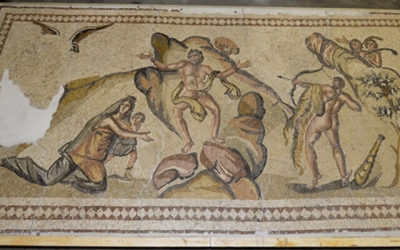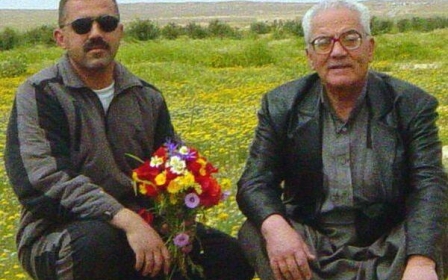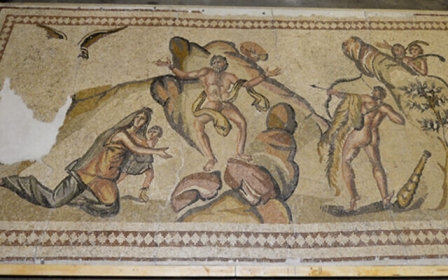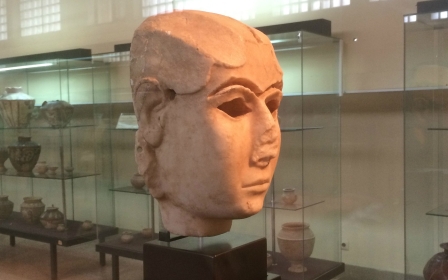Khaled al-Asaad: Possible remains of Syrian archaeologist found at Palmyra
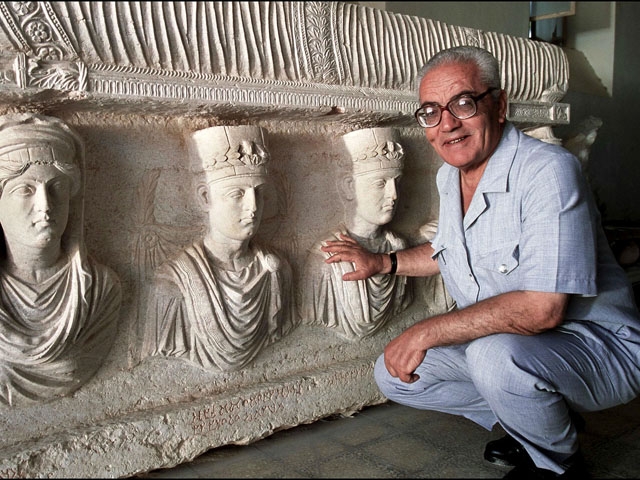
Remains thought to belong to Khaled al-Asaad, the distinguished archaeologist who was killed by Islamic State group (IS) militants for obstructing their rampant destruction of ancient treasures, have been found in Syria's Palmyra.
Asaad, who had been in charge of the ancient Greco-Roman site for decades, was executed in public by IS in 2015, after refusing to lead them to hidden troves of artefacts he had buried for safe keeping.
His corpse was reportedly left dangling from one of the ancient columns in the centre of a square in Palmyra.
Syrian officials said tests were underway to identify three corpses found near the site. Assad’s son Tarek told The National: "The authorities informed us two days ago and my brother Mohammed provided yesterday a blood sample for the DNA test which will require 72 hours for the results."
"We have high hopes that the body will be of our late father and that God will not disappoint us," he added.
Asaad worked with foreign archaeologists from across the globe, assisting with research into the famous UNESCO world heritage site. His death prompted an outpouring of grief from across the world, and is considered a symbol of resistance against the Islamic State group and a marker of its extreme brutality.
'Industrial scale'
IS’s self-declared "caliphate", which was expunged by military campaigns between 2014 and 2019, lay across a third of Syria and Iraq and contained some of the richest archaeological treasures on earth.
While IS made a show of desecrating antiquities under a religious pretext, the group also raised cash from the looting of the Middle East’s treasures, which were then sold to middlemen operating on the European black market.
Relics from the ancient site of Palmyra are known to have appeared in the shop windows of antique sellers in London’s upmarket Mayfair district.
In 2015, Irina Burkova, then head of the UN's cultural agency Unesco, said ancient sites in Syria and Iraq were being looted on an “industrial scale”, after reports that one-fifth of Iraq’s about 10,000 official world-renowned sites had fallen under IS control.
Looting and black market antiquities trade continues, despite the demise of IS.
Tarek al-Asaad said he wanted to “honour” his father by having his remains buried in the garden of the Palmyra National Museum, if the DNA results showed that one of the bodies is indeed him.
"We will then have the honour, as a family, to escort the remains of our father and our role model to his final resting place. We hope that this place will be the garden of the Palmyra National Museum, as his last request before he was executed was to visit the museum and take his last breaths there," he said.
"There is no place more sacred to my late father than this place. This is our wish as his family."
Middle East Eye delivers independent and unrivalled coverage and analysis of the Middle East, North Africa and beyond. To learn more about republishing this content and the associated fees, please fill out this form. More about MEE can be found here.


